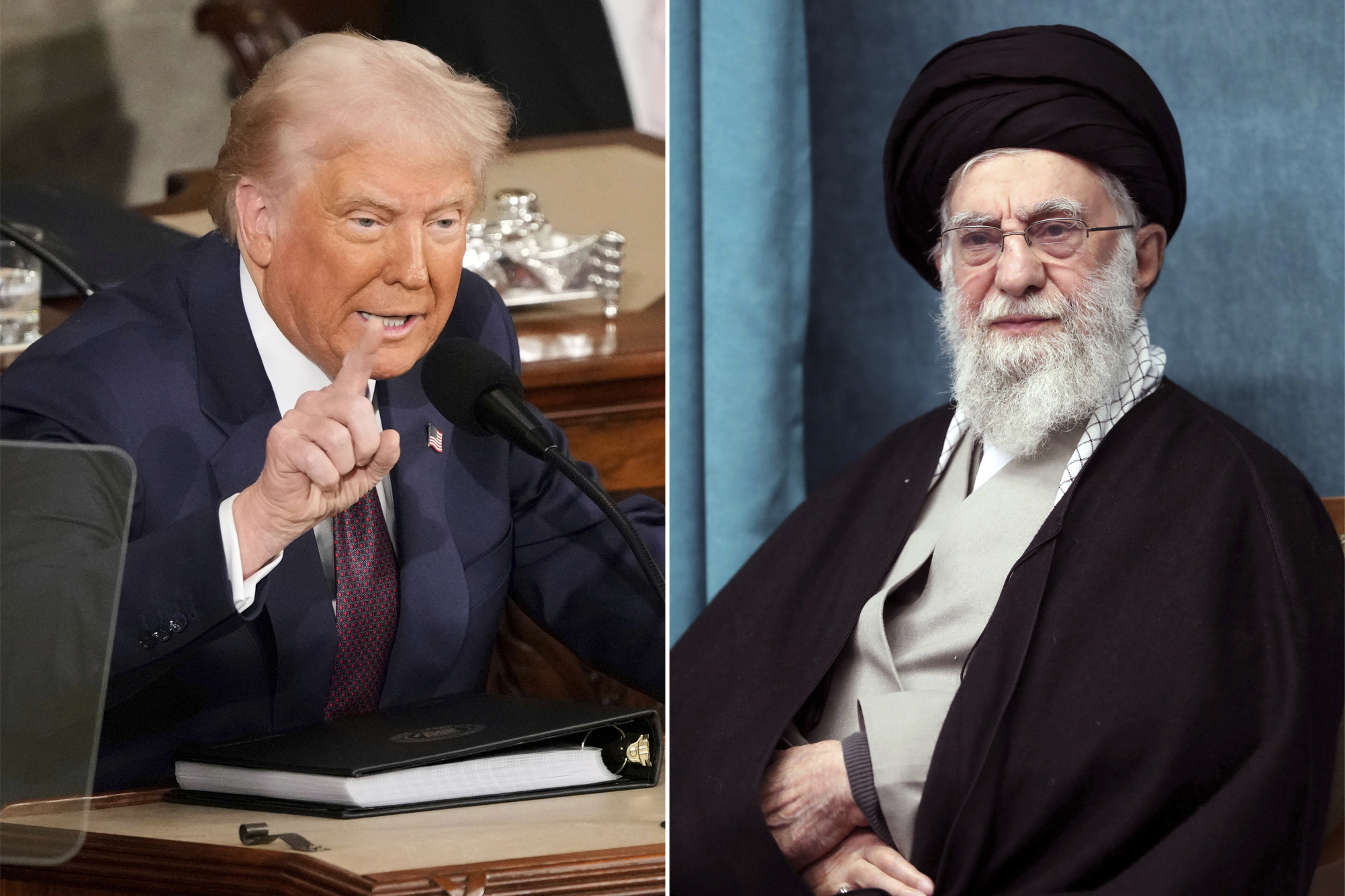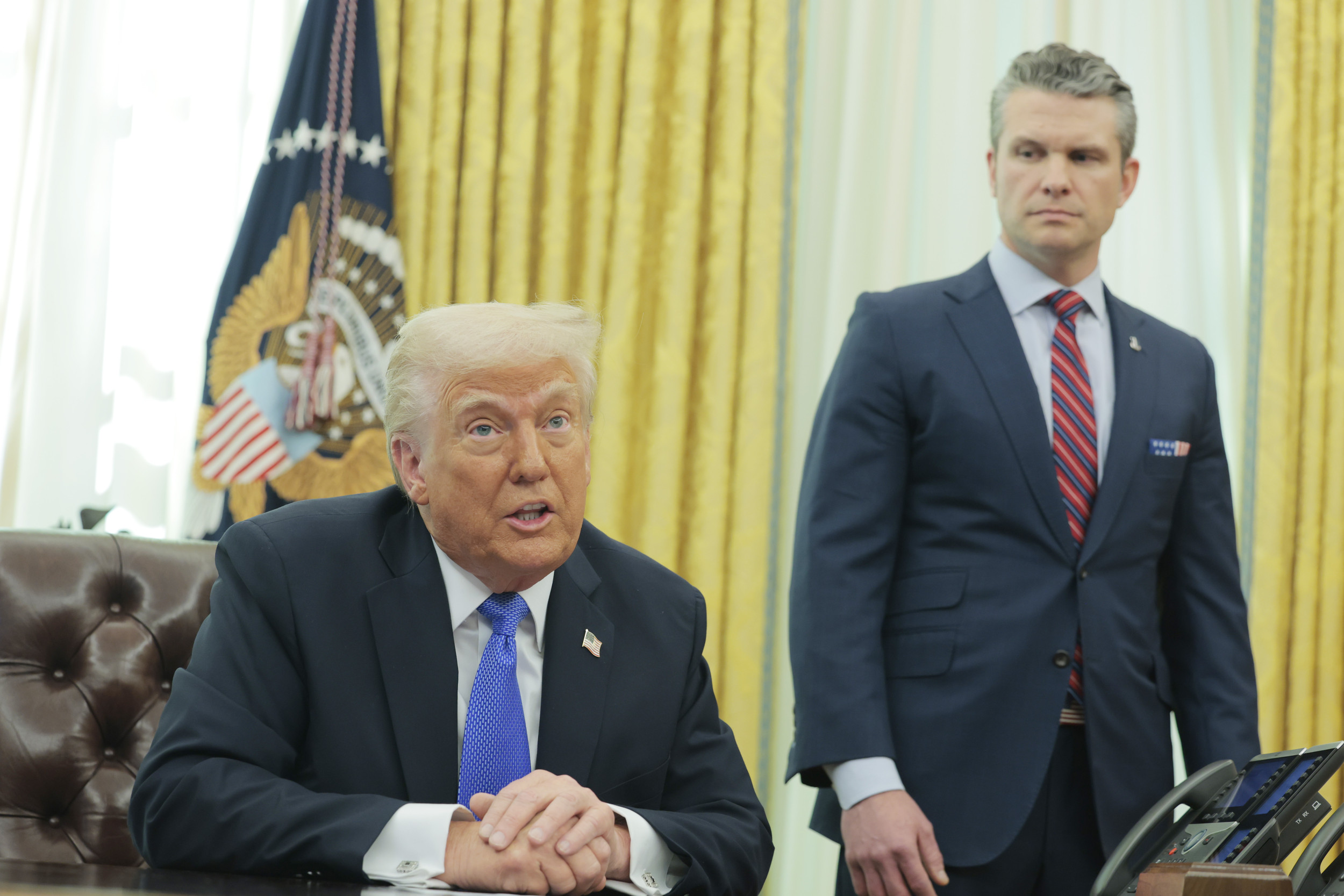The far-Right Alternative for Germany (AfD) has won its first state election in Germany since the Nazi era in a landmark result.
The AfD emerged as the clear victor in Thuringia, in the east of the country, securing almost a third of the vote. It was nine points ahead of the center-Right Christian Democratic Union (CDU), which garnered around 24 percent, and far ahead of Germany's three governing parties.
In neighboring Saxony, it finished only just behind the CDU, which leads the national opposition.
The election outcomes underscore a deepening discontent with Chancellor Olaf Scholz's government, which has been mired in unpopularity and internal conflicts.

The elections came on the 85th anniversary of the outbreak of World War II. Nazi Germany invaded Poland on Sept. 1, 1939, marking the start of the war.
Omid Nouripour, a leader of the Greens, remarked that "an openly right-wing extremist party has become the strongest force in a state parliament for the first time since 1949," reflecting widespread concern about the AfD's rise.
An AfD spokesperson told Newsweek: "We are not a Right-wing extremist party."
The parties within Chancellor Scholz's coalition performed poorly, with the Greens facing the loss of their seats in Thuringia and the pro-business Free Democrats failing to secure representation in either state.
Adding to the complexity of the political landscape, a new party founded by prominent leftist Sahra Wagenknecht made a striking debut. The Sahra Wagenknecht Alliance (BSW) captured up to 16 percent of the vote in Thuringia and 12 percent in Saxony, positioning itself as a formidable new player in regional politics.
Alice Weidel, AfD's national co-leader, hailed the result as a "historic success" and a "requiem" for Scholz's coalition.
Despite AfD's gains, mainstream parties continue to reject any coalition with the far-Right group. CDU's national general secretary, Carsten Linnemann, reaffirmed that the party would not form alliances with AfD, a stance that could complicate the formation of future state governments.
The AfD's success is largely rooted in the former communist East, where the party has capitalized on anti-immigration sentiment and skepticism toward Germany's military support for Ukraine. Thuringia's AfD leader, Björn Höcke, who is under surveillance by the domestic intelligence agency for right-wing extremism, expressed pride in the election results, dismissing concerns about his party's extremist label.
The dismal performance of Germany's governing coalition has compounded the woes that began with their poor showing in the European Parliament elections in June. With the national election looming just over a year away, Scholz and his coalition partners are under mounting pressure, yet they appear to lack a clear strategy for reversing their fortunes.
The situation could worsen with another state election on Sept. 22 in Brandenburg, an eastern region currently led by Scholz's own center-left Social Democrats. A poor showing there could further erode the coalition's standing.
"Voters wanted to send a signal to Berlin above all," remarked Jens Spahn, a senior CDU lawmaker, during an interview with ZDF television. "They want to send a signal to the coalition that the chancellor no longer has their confidence. Olaf Scholz is the face of failure in Thuringia and Saxony too."
Antonia Colibasanu a Senior Analyst at Geopolitical Futures, based in Bucharest, told Newsweek the far-Right's success in both Germany and elsewhere in Europe was born out of "existing socio-economic problems", with the parties blaming the European Union (EU), and leading to an environment that is "increasingly unfriendly to immigrants".
"While these parties may not have a solution, they entertain the idea of nationalism and, through that, they support the prospect of the EU further fragmenting, attacking in particular those policies proposed by Brussels," she said.
fairness meter
About the writer
Barney Henderson is Newsweek's Content Editor, based in London, U.K. Barney joined Newsweek from The Times of London, and previously ... Read more



